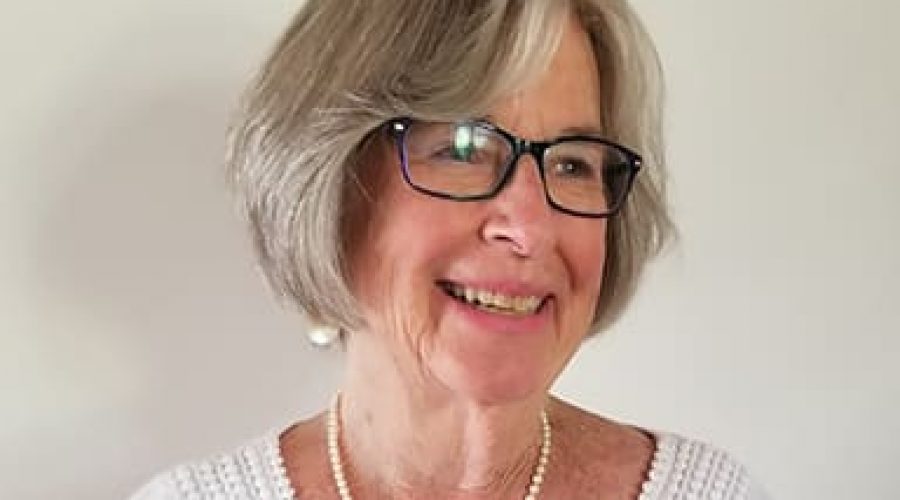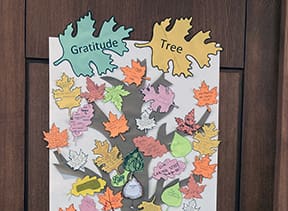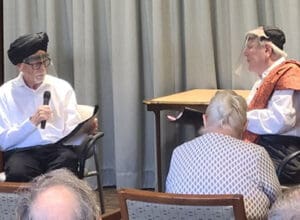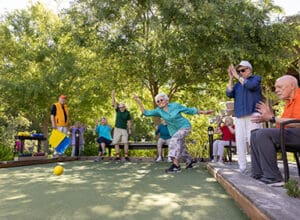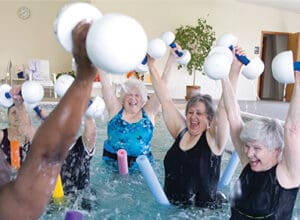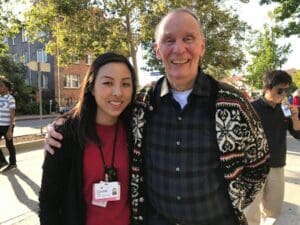Growing up, Spring Lake Village resident Susan Drake wanted to be many things: a wife and mother, a secretary, and a writer. In her 85 years, she has gotten to do all of them. Her first memoir, “Fields of Courage: Remembering Cesar Chavez & the People Whose Labor Feeds Us” reflects on her experience working with the famed labor leader in the 1960s and ‘70s.
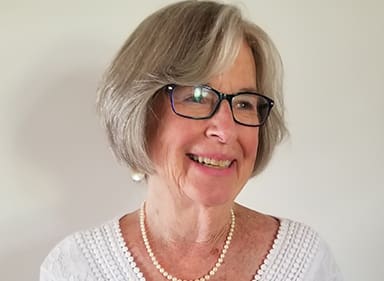
Joining the Frontlines of Labor Organizing
Raised along the San Francisco Peninsula, Susan’s life took an unexpected direction. At 23, she joined her husband to work with what was then the California Migrant Ministry in the Central Valley. Within a month of her starting, the organization was actively collaborating with Cesar Chavez, the charismatic labor leader and civil rights activist. His non-violent methods of community organizing ultimately transformed the Migrant Ministry while his own movement grew into a large, history-making labor union.
In 1965, Susan found herself on the frontlines of the Delano grape strike to fight against the exploitation of farmworkers. She remembers a tense conversation where her organization was accused of being Communist., “I was blessed with the right thing to say: ‘I don’t know much about Communism, but I think there’s a lot in Christianity about taking care of the poor,’” she said. “I finessed my way out of that really well.”
Susan and César: A Dynamic Relationship
In 1970, Susan got to know Chavez well as his secretary. “I was hired for a couple weeks, and stayed almost three years!” Susan recalled. She remembers Chávez as charismatic and perseverant; she appreciated the “vicarious power” that came with being around someone so influential.
She and Chávez had their ups and downs. “César’s mom and I were the same astrological sign, Cancer; he and my dad were Aries. We were acting out our childhood dynamics in the office,” she laughed. When Chávez found out she was writing a memoir that he appeared in, he joked, “You better be careful. Maybe I’ll write one about you!”
Susan’s second memoir, “Step by Step” tells of how she used what she had learned, after nine years with the farm workers movement. Susan had the opportunity to attend a conference on non-violence in New Delhi alongside well-known social justice leaders, including Buddhist teacher Thich Nhat Hanh. After a day full of talks, she sat down with a group of participants to discuss what really needed to change. She wanted to lead a march on the American embassy in New Delhi to protest the Vietnam War. Despite her husband’s opposition to the idea, she went through with it—and gained the confidence to end an unhappy marriage.
She ultimately left the organization after disagreeing with him on organizing strategy.
One thing Susan would like readers to take away from her experiences is that ordinary people can do extraordinary things. Despite his fame and accomplishments, Chávez was an ordinary person, with ordinary foibles like everyone has: He was human.
“At 85, I still find it so hard to accept being human, but we’ve got to do it,” Susan said. “The only way we’re going to bridge the current political gap is to see each other as valued human beings with different ideas and then to find common ground.”
Staying Engaged
Recently, Susan has been working on another memoir, based on old letters to her parents and her journals, about her adventures living in Mexico. She loves writing and would spend multiple hours a day doing it if she had the time!
At Spring Lake Village, Susan is involved with the Outreach Committee and the Conservation Committee, helps edit the literary journal, and participates in a variety of ways to welcome new residents. She finds Spring Lake Village to be a “loving and responsible community.”
While she’s no longer on the frontlines of social movements, Susan brings that same ethos to her everyday life — and encourages others to do the same. “I hope that more people will take local responsibility seriously, in terms of where they order their food and where they buy,” she said. “It’s important to support local businesses and non-profits. It’s about recognizing the faces of people working for you, whether they’re farmworkers or employees where we live. It’s also about taking our citizenship privilege seriously enough to vote.”
With a sense of what really matters, Susan embodies the values of Spring Lake Village.
